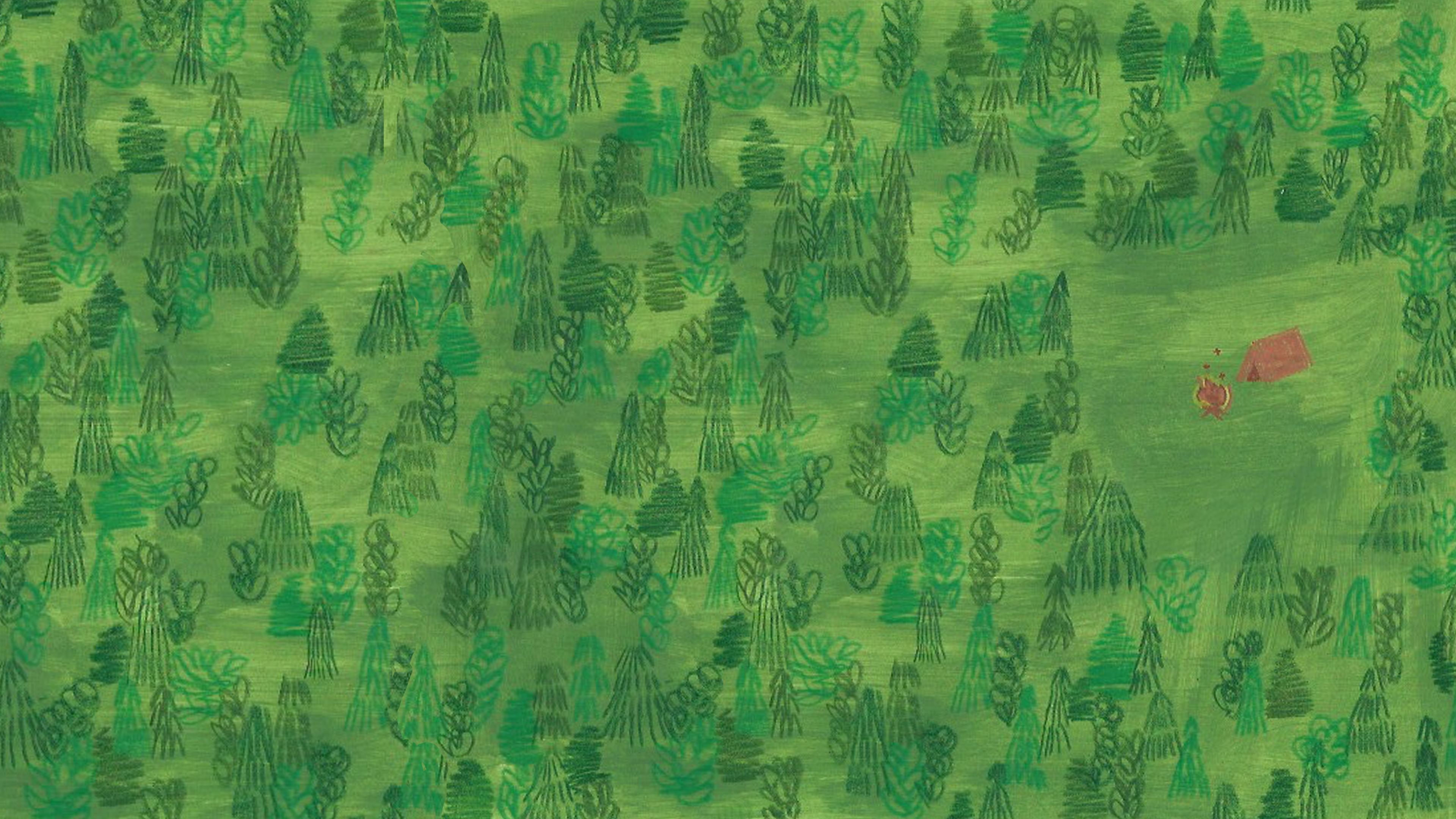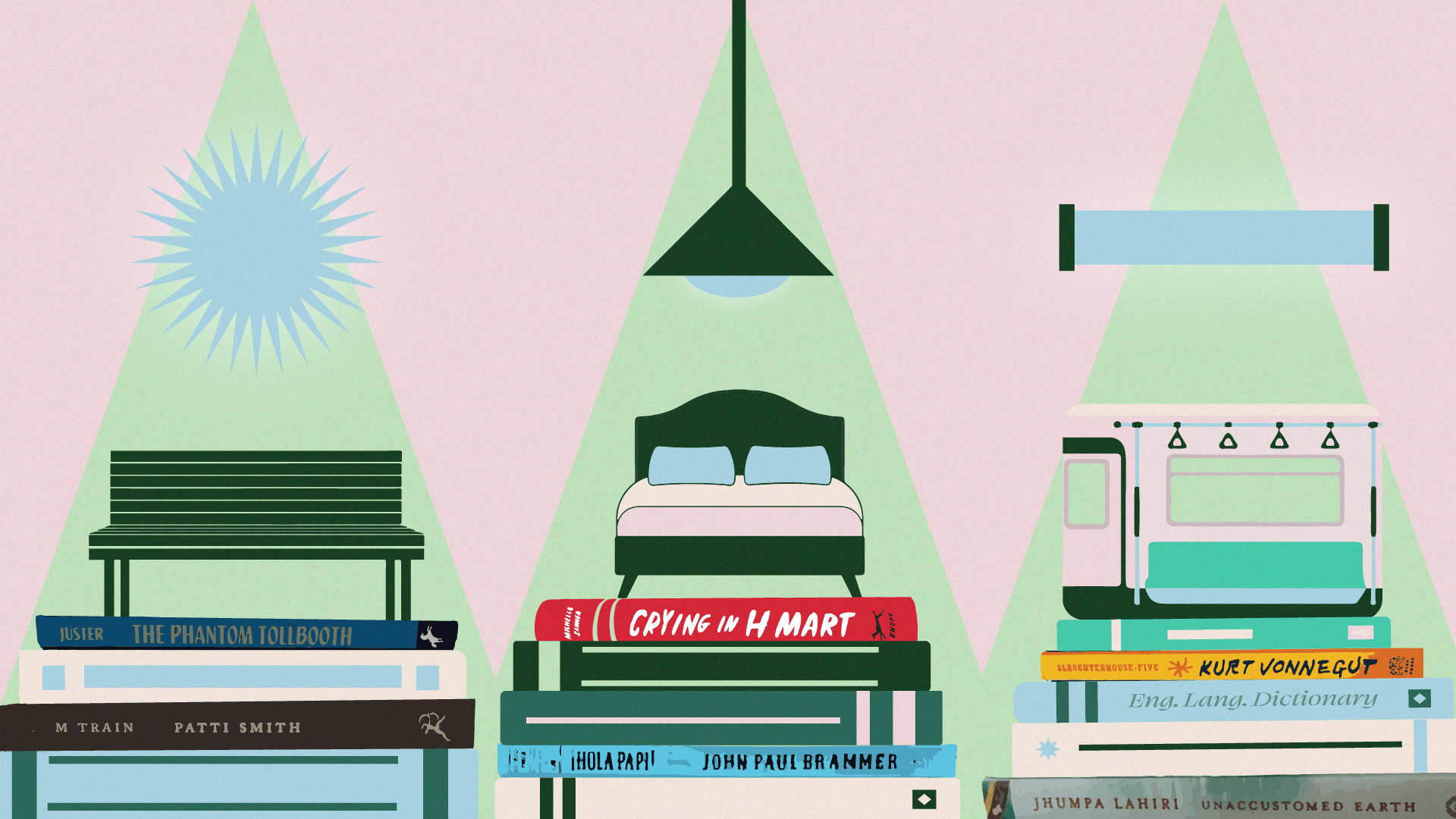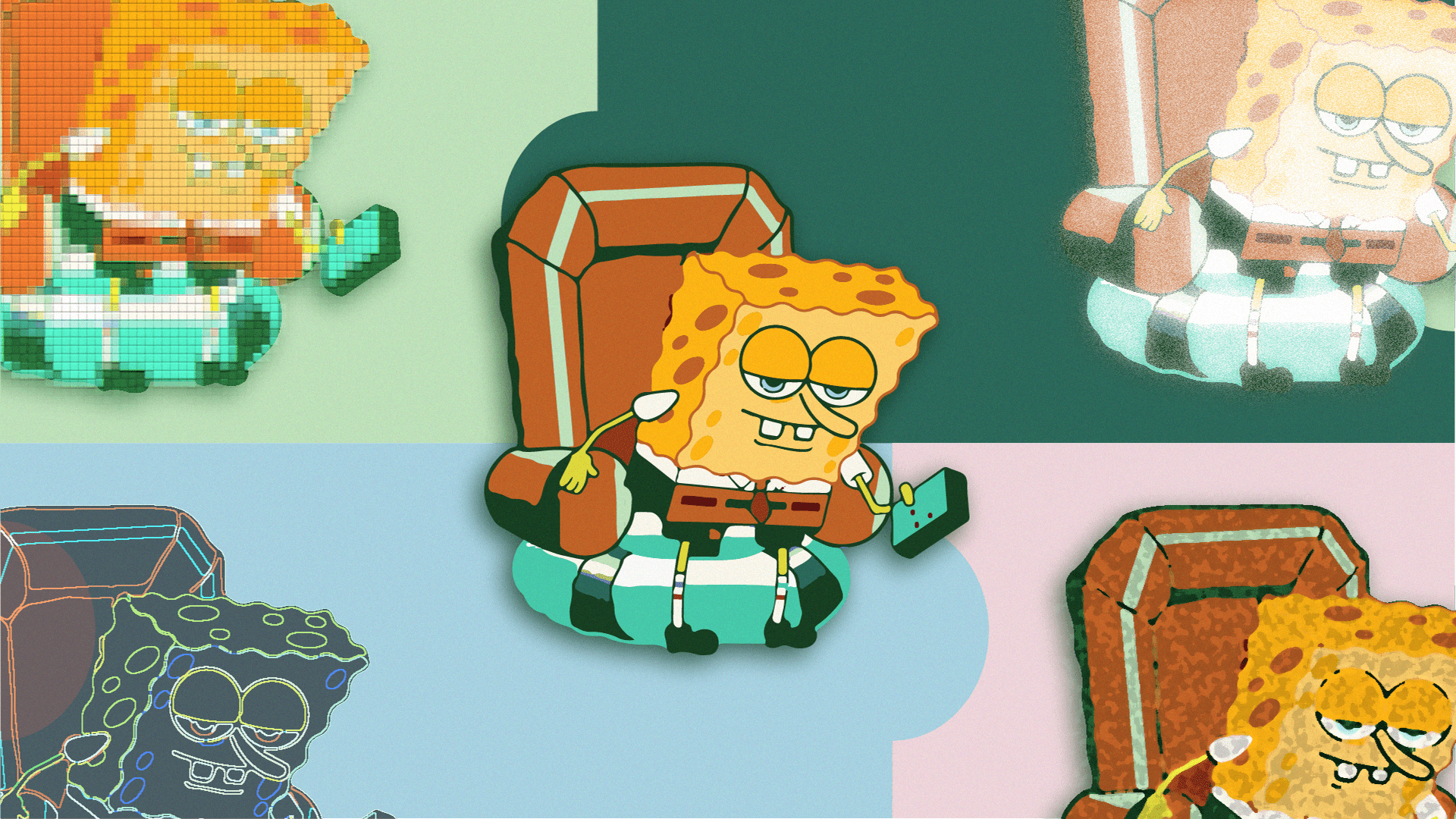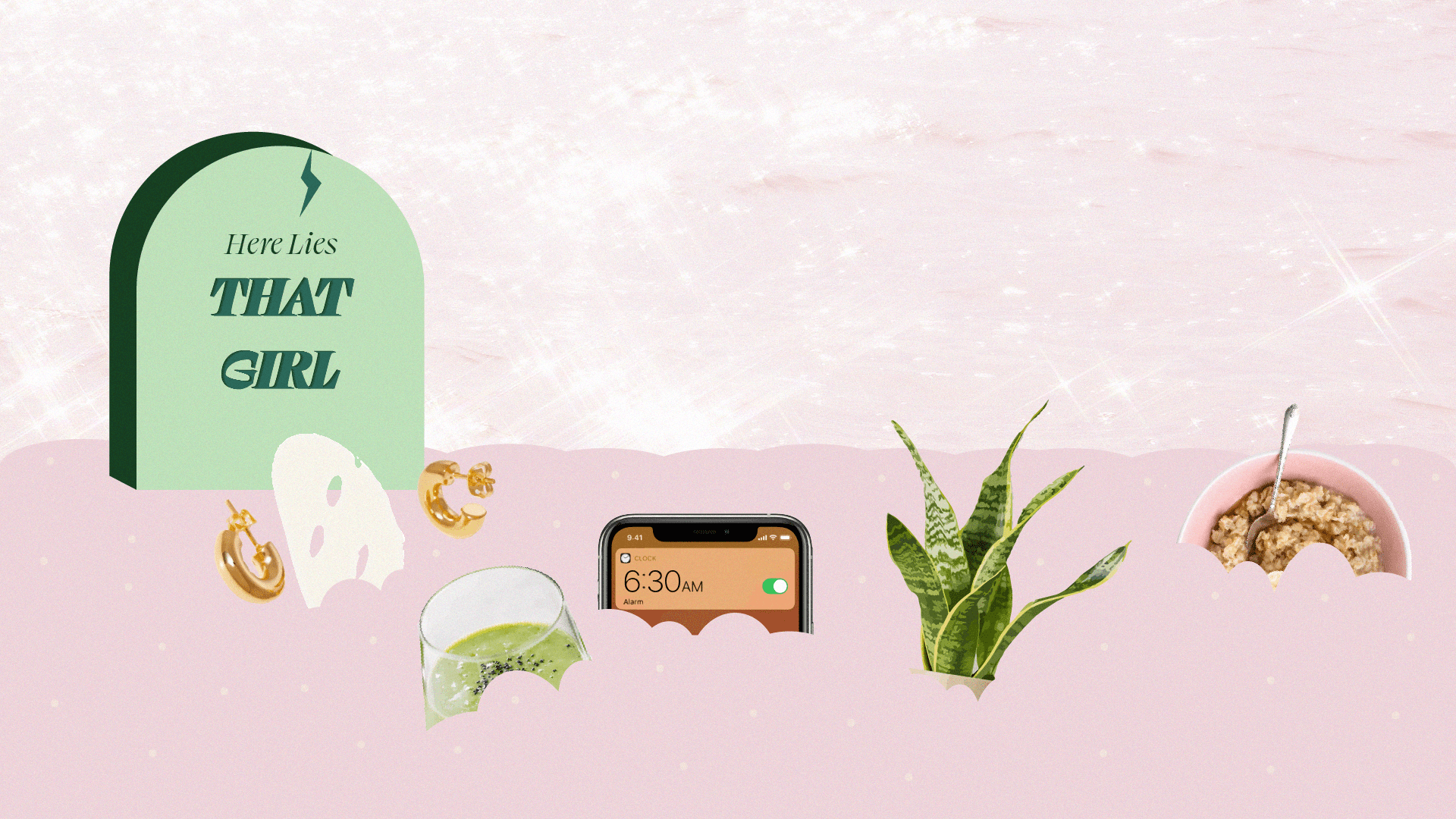
This Survival Show Is My Distraction from the Pandemic
I’d literally rather live in the wilderness than think about the coronavirus ever again.
Over the summer, I bought my first pieces of backpacking gear and made it out on a few silent, serene hiking trips where nervous thoughts of the pandemic almost faded among steep mountains and trickling rivers. But it wasn’t safe enough to do that every weekend, and the little daily quarantine walks around my Brooklyn neighborhood that I’d go on otherwise just weren’t cutting it anymore. I wanted to be in the backcountry of a remote wilderness, with nothing but a pack full of necessities and maybe my partner. Maybe.
If I couldn’t be outside, away from stress-inducing social media, a dysfunctional government, and a pandemic, I needed to at least watch someone else live off the land, in a state of peaceful, solo anarchy. So I threw myself into the survival reality show Alone.
The show follows ten survival and bushcraft fanatics, who agree to be thrown into an extreme, isolated environment, with nothing but ten items selected off an approved list of things like ferro rods, axes, bows, arrows, and fishing line. Mountain ranges and large bodies of water separate the participants, making it impossible to find one another, intentionally or otherwise. Each person is outfitted with a satellite cell phone, and can tap out at any time, with rescue crews on standby to pick them up. The last one standing wins $500,000, but the catch is that none of the contestants are notified when someone drops out, like the opposite of the Hunger Games cannons.
There’s something intensely fascinating about observing people survive and interact with themselves while completely isolated in harsh locations like Vancouver Island, Patagonia, and the Arctic. I find myself gleefully watching participants spot a bear walking near their shelter or listen to a pack of wolves in the distance. These bizarre dangers have become a thrill for me, since they seem far away from the immediate health danger that everyone has been in for months.
This all sounds extreme, I know. But the show is equal parts an exercise in sympathizing with the isolated contestants and feeling better about yourself because they have it worse than you. I have my partner with me, and my friends and family are a phone call away. Every time I watched Sam in season one and six trap, skin, cook, and eat a field mouse was enough to make me a little more grateful for my own isolated experience.
At the same time, while it might seem counterproductive to want to be alone or watch people be alone during a pandemic that has caused many folks to go without seeing their loved ones, Alone is the only reality show that allows me to truly escape the pandemic. TV series like The Bachelor and Love Island that have been filmed during the ongoing coronavirus crisis only make me think about the health risks the people on those shows are putting themselves and the crew through. While Alone has its own set of health risks associated with it (Poisonous spider bites? Starvation?), it is, by design socially distant, and affords a little escapism to the woods for the viewer. It is not filming during the pandemic, but it easily could be.
Each contestant films themselves nearly 24 hours a day while they hunt, fish, forage, wield off predators, and try to keep their minds occupied. The camera is their only companion as they shoot thousands of hours of footage — and people tend to get vulnerable. There are clips of contestants crying about missing their family, eating bad food that makes them sick, and a few times, even accidentally setting the shelters they built on fire (looking at you, Nikki from season six). It’s easy to look at the contestants and say “Wow, that was stupid” when they burn their home down or eat parasitic fish even though they know it might make them sick. But obviously, keeping yourself alive in the Arctic or Mongolia when you’re starving and freezing is harder than it looks on TV.
A number of Alone contestants drop out due to loneliness, but I never imagine that would be the hard part of the challenge. Being socially isolated these past months has chilled me into thinking that being by myself wouldn’t be so bad, and the mental challenge of being out in the wilderness would be easy in comparison to the actual survival skills. When contestants tap out because they miss their family, I almost always scoff, believing that finding food and staying safe are the real challenges, and that they’re being soft for bowing out due to loneliness. This lack of empathy for isolated contestants likely stems from not being able to see my family for almost a year now, as I’ve been unable to travel during the pandemic. Perhaps I’m a bit jealous that Alone contestants have the choice to tap out and go see their loved ones, but I don’t have that option right now.
Aside from the mental challenges of Alone, I like to think about how I’d handle survival, if I had the skills to be on the show (in my head, I’m a skilled survivalist, but in reality, I’m a recreational hiker at best). Maybe part of my fascination with the show is like the appeal of cottagecore, but turned extreme. During the pandemic, people looked to cottagecore activities like baking, gardening, and sewing to bring them back to a simpler life, before the pandemic. I have the same intentions, but instead of embroidery, cherry pies, and picnics, I just want to throw the whole society out and live in a shelter in the woods.
So, while it’s perhaps the most unrealistic show for me to put myself into (I would not be able to survive on my own in the wilderness for more than maybe two days, considering I don’t know how to properly start a fire), Alone is the only reality show that actually makes sense during the context of the pandemic. There is no film crew. There are no coronavirus risks associated with being in the remote wilderness all by yourself. Hunger, predators, and the cold are the main dangers, instead of a wild virus. I am free to imagine how I’d handle survival (which living through a pandemic sometimes feels like) and empathize (or choose not to) with the contestants over their struggles and decisions to tap out. It’s the only show that draws me in so intensely, that I can forget about real-world anxieties and worry only about how Jordan from season six is going to store his moose meat.
Until further notice, you’ll find me watching people process their raw emotions by themselves in the wilderness, instead of watching heavily-produced dramas. And for the record, if I had to choose between watching someone fight off a bear or a reality TV star talking about how they’ve been quarantining to appear on a show, I’d gladly choose the bear.
This story is part of Reality TV Week. Check out the other stories here.


